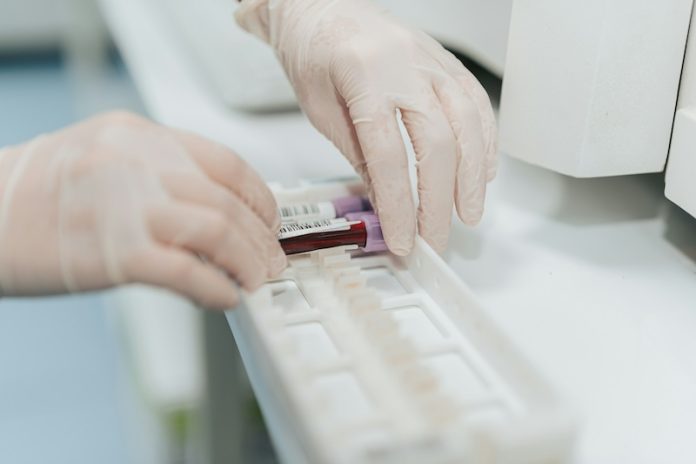
Scientists at the University of California San Diego have discovered that high levels of an enzyme called PHGDH in the blood might serve as an early warning sign of Alzheimer’s disease.
Their study found that this enzyme is consistently elevated in people with Alzheimer’s, even in the earliest stages before symptoms like memory loss or confusion appear.
The researchers investigated brain tissue from various stages of Alzheimer’s disease and found that the gene responsible for producing PHGDH is more active in these individuals.
This increased activity was observed not only in those diagnosed with Alzheimer’s but also in people without cognitive problems whose brains showed early signs of the disease after death.
These findings suggest that PHGDH could be a reliable marker for detecting Alzheimer’s at its earliest stages.
PHGDH is crucial in producing serine, an amino acid that plays a role in brain health. Interestingly, the study raises concerns about using serine supplements as a treatment for Alzheimer’s.
Since PHGDH levels are higher in Alzheimer’s patients, the rate of serine production in their brains is likely already increased.
This challenges the idea that taking more serine could help combat the disease. In fact, it suggests that additional serine might not be beneficial and could even have unintended effects.
In their research, the team analyzed genetic data from brain tissue collected after death from individuals aged 50 and older. These samples were drawn from four separate groups, each consisting of 40 to 50 participants.
The groups included Alzheimer’s patients, people without an official diagnosis but with early brain changes linked to Alzheimer’s, and healthy individuals.
Across all groups, PHGDH activity was consistently higher in Alzheimer’s patients and those with early brain changes compared to the healthy participants.
This trend was also observed in mouse models of Alzheimer’s disease, reinforcing the findings.
Moreover, the researchers noticed that the higher the PHGDH levels, the worse the individuals performed on cognitive tests. This suggests a strong connection between the enzyme and the progression of the disease.
The study’s implications extend to ongoing clinical trials testing serine supplements for memory and cognitive function in older adults.
While some researchers believe that serine could help prevent or treat Alzheimer’s, the new findings suggest otherwise. If serine production is already heightened in the disease, adding more through supplements might not be effective or necessary.
These findings add to a growing body of research exploring Alzheimer’s causes and potential treatments. Other studies have highlighted the role of the herpes virus in triggering Alzheimer’s and the importance of enhancing the brain’s natural cleaning processes to combat the disease.
Additionally, recent research suggests that foods like cranberries and antioxidants may support brain health and reduce the risk of dementia.
This study, led by Sheng Zhong and published in Cell Metabolism, underscores the importance of understanding the biological processes behind Alzheimer’s to develop better treatments and preventive strategies.
It also emphasizes the need for caution when considering supplements for brain health, as their effects may not align with initial assumptions.
If you care about brain health, please read studies about vitamin D deficiency linked to Alzheimer’s and vascular dementia, and higher magnesium intake could help benefit brain health.
For more information about brain health, please see recent studies about antioxidants that could help reduce dementia risk, and coconut oil could help improve cognitive function in Alzheimer’s.
Copyright © 2024 Knowridge Science Report. All rights reserved.



